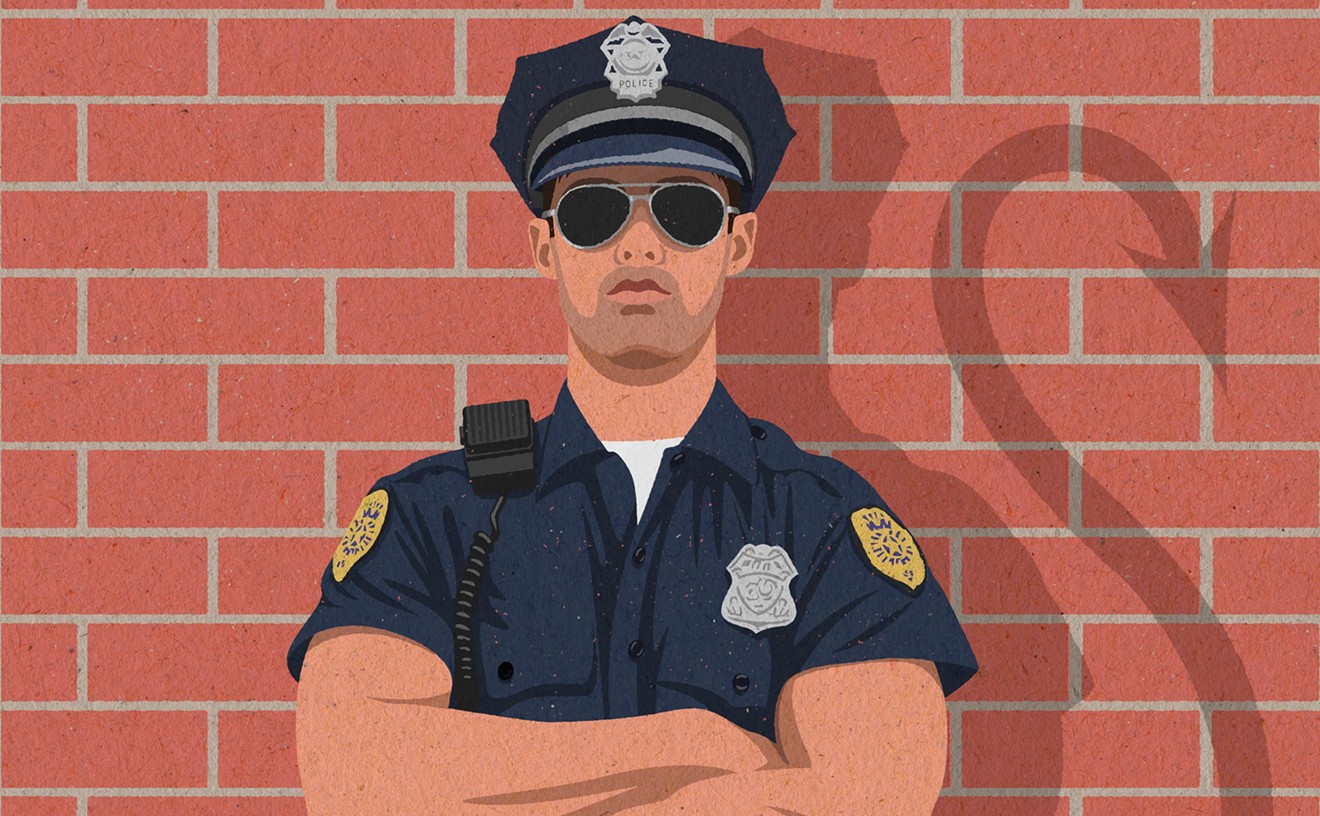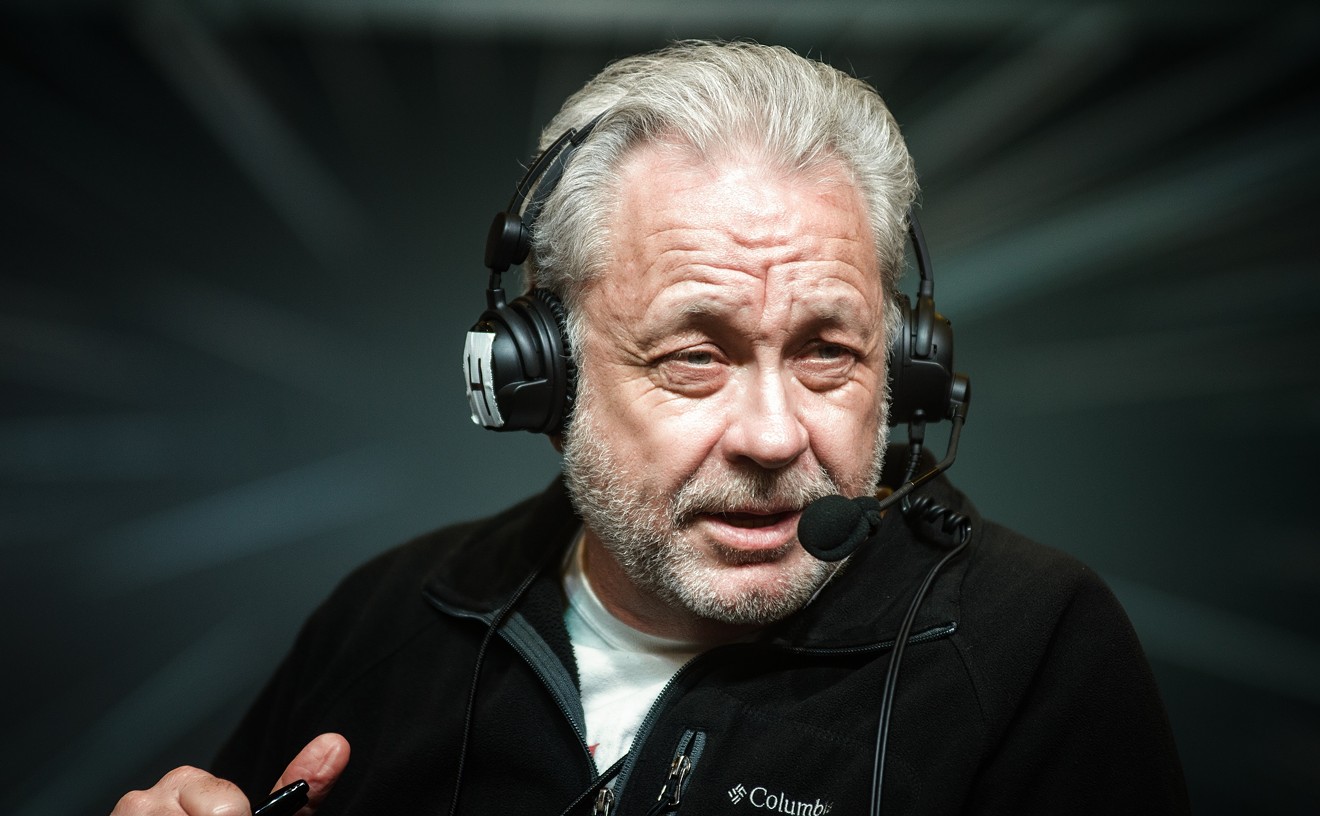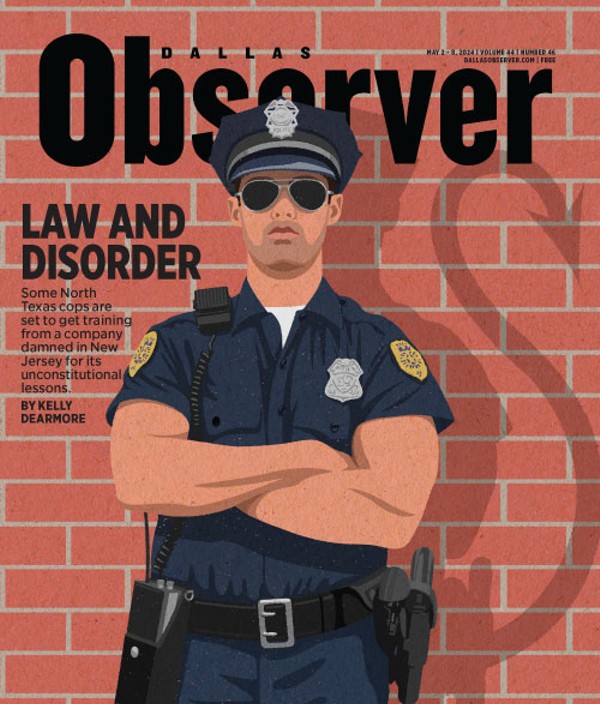O'Keefe has center stage, but it's executive director Russell Verney who helped prepare the show. Verney, a Dallas native and former resident, worked as Ross Perot’s senior political adviser during the 1992 presidential election and his campaign manager in Perot’s '96 presidential bid. He is also the founding chairman of the Reform Party, so he is no stranger to the political arena. He joined Project Veritas in 2011.
Verney claims O’Keefe’s nonprofit isn’t a political organization and not beholden to any conservative candidate, despite Trump’s $10,000 donation in May 2015. “Yeah, a lot of people contribute [to the organization],” Verney says. “But nobody controls our work or decisions. They’re made internally, and O’Keefe has the final say.”
Verney didn’t specify how long Project Veritas spent investigating its latest video release. He says eight undercover journalists with hidden cameras worked on the project “for a long time,” he says. “This one kept allowing greater and greater access to the decision makers and money tree.”
Some of the dirty tricks include initiating "conflict engagement" in the lines of Trump rallies that led to Trump canceling a rally at the University of Illinois in Chicago; paying “mentally ill” people to cause havoc with questions, otherwise known as “bird dogging”; and committing voter fraud. “We’ve been bussing people in to deal with you fuckin’ assholes for 50 years,” an undercover camera catches Foval saying.
Since its release, Rigging the Election part 1 and part 2 have garnered more than 8.5 million views combined on YouTube. Americans United for Change, a liberal group created to challenge far-right conservatives, removed Foval as its national field director, and Creamer announced he was stepping back from the unified Democratic campaign for Hillary Clinton.
Democracy Partners, a Creamer-founded organization, released a statement shortly after Project Veritas’ videos were released:
“Our firm has recently been the victim of a well-funded, systematic spy operation that is the modern day equivalent of the Watergate burglars. The plot involved the use of trained operatives using false identifications, disguises and elaborate false covers to infiltrate our firm and others, in order to steal campaign plans, and goad unsuspecting individuals into making careless statements on hidden cameras.”The Observer asked Verney if they would release the full transcripts of their interviews. “We do not release raw or unedited tapes or reporters’ notes of investigations,” he wrote in a Oct. 21 email. “This policy ensures compliance with federal and state laws while providing the best privacy protection for individuals recorded.”
But one of the “decision makers" in the recordings, activist Cesar Vargas, wrote in an Oct. 18 Facebook post: “They have a transcript of our conversation to confirm I told them that voting twice was illegal. I will not respond to Fox News or trolls but let them have their field day of conspiracies."
Selective editing is a charge that has been haunting O’Keefe and his project for years. California Attorney General Edmund G. Brown, Jr. wrote in April 1, 2010 press release:
“Videotapes secretly recorded last summer and severely edited by O'Keefe seemed to show ACORN employees encouraging a "pimp" (O'Keefe) and his "prostitute," actually a Florida college student named Hannah Giles, in conversations involving prostitution by underage girls, human trafficking and cheating on taxes. Those videos created a media sensation.Brown says in the press release, “The evidence illustrates that things are not always as partisan zealots portray them through highly selective editing of reality. Sometimes a fuller truth is found on the cutting room floor."
Evidence obtained by Brown tells a somewhat different story, however, as reflected in three videotapes made at ACORN locations in California. One ACORN worker in San Diego called the cops. Another ACORN worker in San Bernardino caught on to the scheme and played along with it, claiming among other things that she had murdered her abusive husband. Her two former husbands are alive and well, the Attorney General's report noted. At the beginning and end of the Internet videos, O'Keefe was dressed as a 1970s Superfly pimp, but in his actual taped sessions with ACORN workers, he was dressed in a shirt and tie, presented himself as a law student, and said he planned to use the prostitution proceeds to run for Congress. He never claimed he was a pimp.”
Verney says they edit their videos because they have hundreds of hours recorded, but he claims it’s edited in the context of the discussion. He didn’t specify which discussion.
Time and good reporters will tell if O’Keefe and his team of undercover operatives continued their use of highly selective editing of reality with Rigging Election. But Verney points out that no one has come forward to indicate a single section of either video was wrong.
“Because they can't refute the message, they attack the messenger with innocuous statements like 'heavily edited' as though they would be satisfied if it was lightly edited,” he says. “Every news report you see on television is edited, heavily or lightly we'll never know.”











